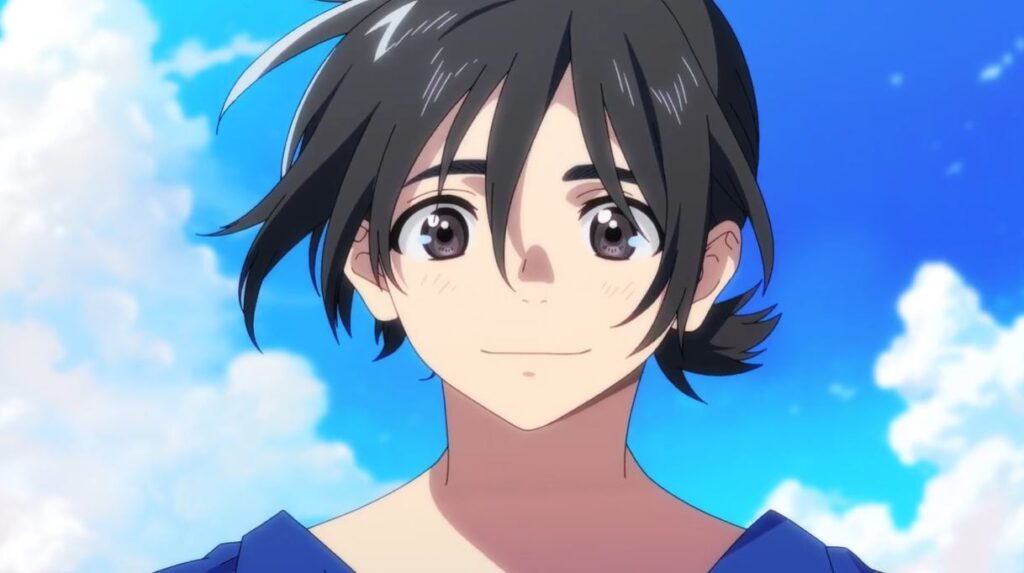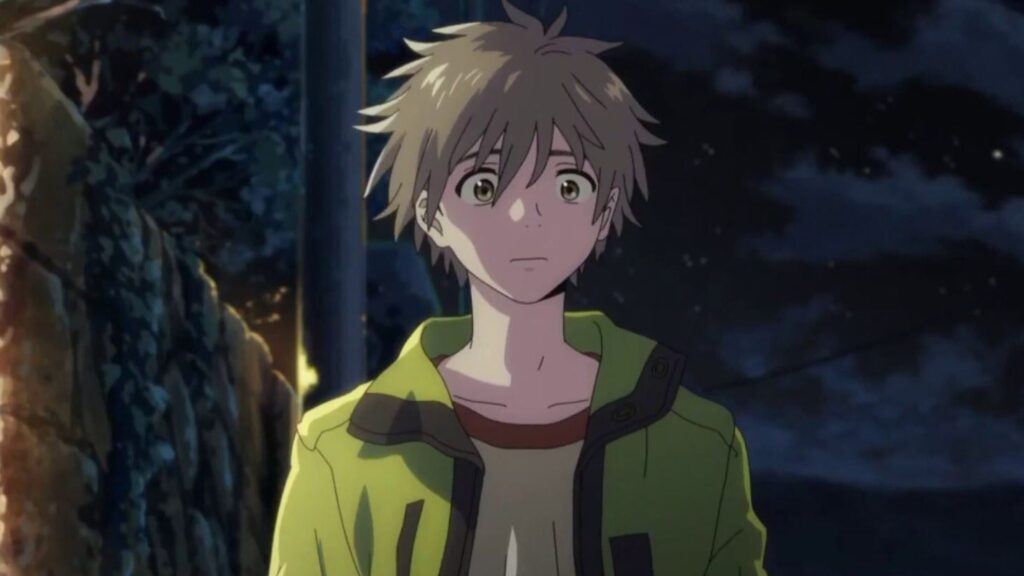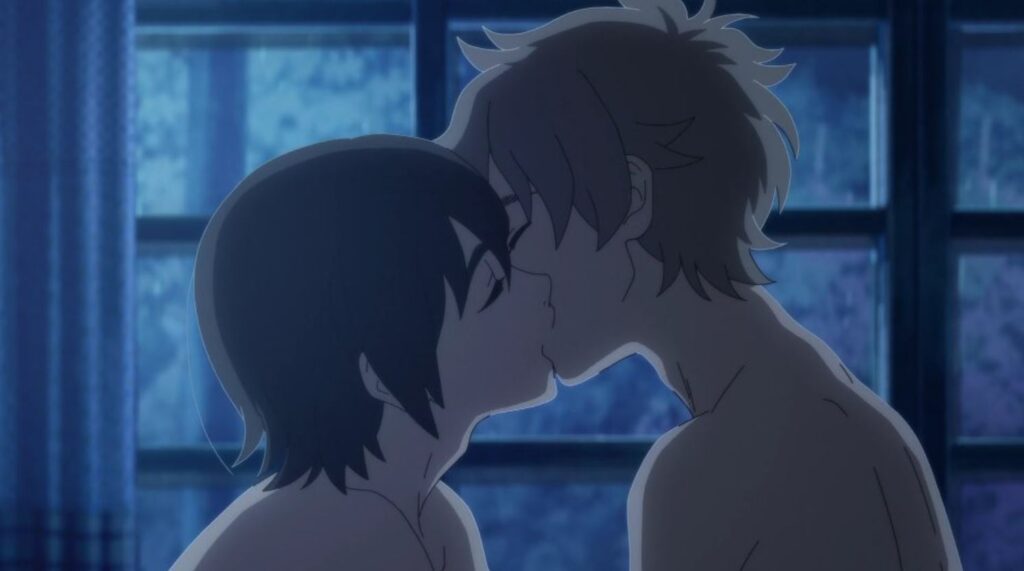
Anime Impact: Stranger by the Sea conveys how queer anxiety leads to miscommunication
Ever know someone who can’t shut up when watching a movie? That’s me. When I really enjoy watching a series or movie, I’m very audible. What I say can come in the form of yelling “STOP” when characters do cute things, commenting “wish that were me” half jokingly, or maybe letting out a little incoherent yell here and there when something onscreen stresses me out. Thankfully, I watched Umibe no Étranger, Stranger By The Sea in English, alone and didn’t have to subject a couch partner to how audible I was watching this movie. From the movie being an obvious love letter to the Okinawa islands, and seeing a relationship between two lovers innocently blossom as they realize time and time again communication is key, I have so many great things to say about this story of two island boys falling in love.
February is probably the coldest month here in the Northeast of the US. Wishing I was at a beach with a pink lemonade in my hand, I dug around for a movie or series that would bring me someplace warm. Some people suggested Free!, others Devilman Crybaby as a sick joke, but I came to watching Stranger By The Sea after coming across an announcement showing its adorable art.
Stranger By The Sea is a complete manga series, written and illustrated by Kii Kanna, with a sequel currently ongoing. Its anime adaptation was announced early last year, hoping to hit theaters in September 2020, and came out on Blu-Ray on February 24th 2021. Produced by Studio Hibari, those responsible for anime like the Danganronpa adaptions and Assassination Classroom, I knew I would be well-fed with visuals. The story centers two characters: Shun and Mio, one secure about his romantic feelings, the other worried that they are better off loving other people instead.
Shun Hashimoto is an ashy-haired writer who helps run a local inn with his grandmother in Okinawa. He ran away from Hokkaido to Okinawa after coming out to his family when he realized he couldn’t marry his fiancee, a childhood friend, because he wanted to be with a man. His father, lashing out, drove Shun to leave. It doesn’t end badly though, as Shun finds a new home in southern Japan with a new family- consisting of his grandmother, Eli, and Suzu.

As for Mio, he is a lonely, young man who likes to spend his time sitting on a bench, looking longingly at the waves that pass by. Both of his parents passed away when he was younger, and so he keeps to himself, living the simple routine of getting up, paying your respects to the dead, doing errands, and coming home to sleep.
Shun and Mio don’t know each other, but Shun’s grandma notices Shun looks constantly out the window to see if Mio is on the same bench every morning. Giving Shun the nudge he needed, his grandma lets him know that Mio is by himself most of the time she sees him, and explains that he used to come by the inn quite frequently with his mom when he was younger. Knowing this information, Shun packs Mio a bagged dinner from the leftovers of food the inn did not sell that day, opening up their first interaction.
Stranger By The Sea will then give watchers butterflies in their stomach as they watch the two interact, perfectly replicating what it’s like to have a deep crush on someone: the nervousness between two people worried about overstepping boundaries, and how scary the things you’ve discussed could be miscommunicated.
Aside from how beautifully animated everything is, and the character designs giving big Studio Trigger (Kill La Kill, Gurren Lagann) vibes, its messaging with communication stuck. Viewers take a sneak peek in Shun’s past as a high schooler, where his classmates are making fun of him for being gay, making comments like “gosh, sucks for me that I sit next to him” or “he looks like a girl”. As many will be able to relate to, hearing hurtful comments does stay with you when you first hear them as a kid, whether it’s your sexuality, your body, how you talk and laugh…It grows with you.
As Mio is gearing up to leave college soon for a few years, Shun is as happy as he can be that he has someone he has strong feelings for around him, but the past comes back and takes Shun to those same feelings of “being gay is weird, liking men is not normal.” This leaves Shun questioning if he would want Mio to go through the same hardships he had to go through. But being with Mio makes him happy, so tries to enjoy his time with him up until his last day on the island.
Time passes and eventually Mio comes back and confesses right to Shun, letting him know he is all he thought about for the three years he was away. Three years is a lot alone with your thoughts. That’s over 1000 days of telling yourself that liking men is a problem, so Shun hearing that Mio likes him, is reluctant to show any emotion and instead chooses to ‘protect’ Mio and give him a chance to have what Shun deems a normal life – a safe relationship with a woman.

We see that Shun does not tell him this right away, and he does this a few times throughout the movie. While I can just say “yeah this could’ve been solved if they just talked,” I think scenes like this are a perfect representation of two people, yes even real people, having their first serious relationship, figuring out how to be emotionally secure. Both Mio and Shun in Stranger By The Sea have a hard time opening up because of their family struggles. So seeing them in real-time learning to trust each other more is really comforting. From trying to figure out how to open up about some painful memories and realizing it feels great to vent and deepen a bond, to things being discussed to figure out a solution. Communication is conveyed so nicely in this movie.
As for the location of the film, Okinawa, I don’t know too much about it. Usually when it comes up it’s related to the American military base there, or that it’s considered the “Hawaii of Japan.” But seeing it through the lens of this movie shows me a carefree style of people enjoying life there. The island in Stranger By The Sea has a love for flowers, giving the residents a boost of color to fall in love with as they take their walks home, being calmed by the sound of waves of the surrounding seas and its bright blue water, and getting an appetite of the local snacks like Okinawa donuts. The animation pays attention to the little details of all the flora around the scenes, and to what kind of beans and flakes might be topped on onigiri. Seeing a queer anime happen in a different setting from Tokyo or Osaka, on a waterfront no less, was refreshing and fun. Expecting the usual trouble scenes that happen when characters try to enjoy nightlife in a city, I was met with deep conversations while two protagonists walked beneath a starry sky with a view of a dark beach. We’ve all seen scenes where characters rush to the train hoping to catch their ride home in time, but here we see people enjoy a ride along ferries bounding from island to island to get errands done. A rural setting offered a new experience for me while watching a gay love story.
Stranger By The Sea has a special place in my heart. I haven’t watched a BL so comforting and easy to watch, all the while still keeping me engaged with the story. While I try to keep things lightly spoiled in reviews, reading this I feel it still will not do the movie justice, and it being so underrated feels criminal.
You can buy and watch Stranger by the Sea now over on the anime’s official website. Buying the special edition gives you some very cute goodies, like pretty postcards you can mail to an island boy you might be longingly thinking about. It makes spending money on physical copies in a digital age, oh so worth it
Anime Impact is a column from Monti Velez that looks at anime with a queer perspective.





